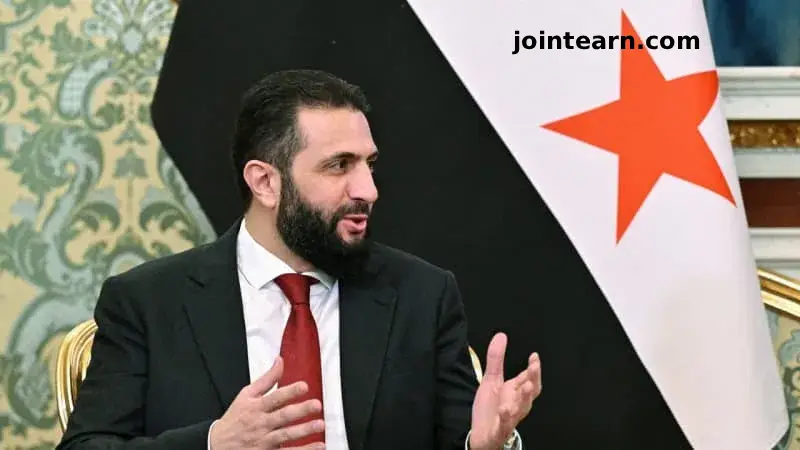
The United States is actively working to lift sanctions on Syrian transitional President Ahmad al-Sharaa ahead of his upcoming trip to Washington, signaling a major shift in U.S.-Syria relations. This development marks a continuation of efforts to reintegrate Syria into the international community following decades of isolation under the Assad regime.
UN Security Council Eases Sanctions on Syrian Leadership
According to reports, the United Nations Security Council recently voted to approve a U.S.-led resolution lifting sanctions on President Sharaa. Simultaneously, sanctions on Syrian Interior Minister Anas Khatib were also removed. These moves are designed to facilitate smoother diplomatic engagement between Syria, the United States, and its allies, and could also enhance regional stability, particularly in Israeli-Syrian relations.
Sharaa’s upcoming U.S. visit is part of a broader effort to signal that Syria is gradually emerging “from the cold” after years of diplomatic and economic isolation. The United States sees this as an opportunity to foster stability in Damascus while maintaining its longstanding alliance with Israel.
Syria’s Growing International Engagement
Sharaa’s trip to Washington comes after attending an environmental conference in Brazil, emphasizing Syria’s intention to play a more active role on the global stage. Over the past year, Syria has accelerated efforts to rebuild international ties:
- European diplomats have returned to Damascus following the fall of the Assad regime.
- Numerous European delegations have visited the capital to explore economic and political cooperation.
- France, under President Emmanuel Macron, has held meetings with Sharaa to explore diplomatic normalization and security cooperation.
Regional Diplomacy and Economic Interests
Syria is also working to strengthen relations with key regional players, including Turkey, Saudi Arabia, and Qatar. Turkey, which previously supported anti-Assad forces and had connections to Hayat Tahrir al-Sham (HTS), is now engaging in tentative cooperation as part of broader peace initiatives with the PKK, potentially benefiting Syrian internal security arrangements.
Saudi Arabia has been instrumental in facilitating Sharaa’s Washington visit, arranging high-level meetings with President Trump in spring 2025 and supporting ongoing dialogue between Damascus and Washington. These diplomatic efforts aim to ensure that the transitional Syrian government remains aligned with U.S. and regional interests.
Security Challenges and Internal Dynamics
Despite these diplomatic gains, Syria faces ongoing internal challenges:
- Reports indicate that attacks against minority communities, including the Druze and Alawites, remain a concern.
- The Syrian Democratic Forces (SDF) control parts of eastern Syria, and the U.S. seeks integration of SDF forces into the national security apparatus.
- An empowered Damascus could centralize authority, potentially reducing incentives to adopt a decentralized or federal governance structure.
Balancing relations with the SDF, Turkey, and broader regional actors remains a key component of U.S. strategic planning in Syria.
Implications for U.S. Policy and Middle East Stability
Sharaa’s visit coincides with other U.S. diplomatic efforts, including meetings with Central Asian leaders and discussions regarding an international peacekeeping force in Gaza. The U.S. views Syria as a central element in regional stability, including efforts to reduce tensions between Israel and Damascus.
By lifting sanctions on Sharaa and Khatib, the United States aims to reward progress in transitional governance while encouraging continued cooperation on counterterrorism, security, and humanitarian initiatives. Analysts suggest that this approach could accelerate Syria’s normalization on the international stage while providing Washington greater leverage over key regional dynamics.


Leave a Reply